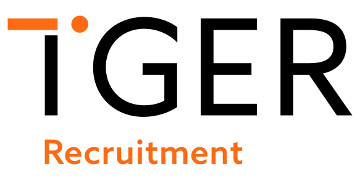It was a time of economic upheaval and rampant unemployment across much of Europe.
Consequently, my forecast that demographic change would see developed global economies facing crippling labour shortages was, to say the least, counterintuitive.
In the years since that interview, however, countries around the world have, one-by-one, tipped over the edge of this ‘workforce cliff’.
The Netherlands and Germany were among the first to report record levels of employment and unfilled vacancies, with the UK and the US not far behind.
Organisations therefore began hiring from a much wider pool of talent, including groups which had previously been marginalised such as both younger and older workers, people with disabilities and migrants.
This required investment in the progressive employment practices and inclusive workplaces required to support individuals from these diverse groups.
Then COVID-19 arrived.
At the beginning of May, the Bank of England warned that UK unemployment may more than double as the economy experiences its sharpest downturn since 1706. So, if there were ever a time for bold HR leadership, this is it.
And my advice to HR leaders is this – don’t allow your organisations to take short-term, reactive decisions which create catastrophic medium-term risks.
Here’s why.
First, Bank of England governor, Andrew Bailey has said that he expected the economy will recover "much more rapidly than the pull back from the global financial crisis.” Plus, the demographic changes which are creating the ‘workforce cliff’ still remain.
Once again I find myself making a counterintuitive forecast. We still face labour shortages which could cripple economic growth but the ‘cliff edge’ has simply been pushed back by three to five years.
As a result, those organisations which maintain their investment in inclusive workplaces will gain a significant competitive advantage when the economy bounces back – a diversity dividend.
Conversely, those that withdraw their investment risk falling into a disastrous talent trap they will struggle to escape from. The reason for this can be summarised in one word: trust.
The individuals supported by progressive employment practices and inclusive workplaces are among the most vulnerable people in our communities.
So, how trustworthy will organisations that pull the plug on that investment be judged? Not only by those they will be pushing back into the fringes of the workforce, but also by their employees and the wider community.
And what about when future talent searches when organisations go back to these ostracised communities?
I wish these were hypothetical questions, but leading figures in the field of inclusion such as Stephen Frost, CEO of Frost Included, and Susan Reichle, CEO of the International Youth Foundation, tell me that they are seeing investment being cut.
Frost predicted that in the UK, almost three-quarters of organisations have already cancelled or postponed programmes, echoing similar action in the US.
Now, I’m a pragmatist, and I know that there will be intense short-term pressure on where money is being spent.
However, I would argue that investment in people practices doesn’t always mean money – it can be about focus and where you put your effort. For example, the single most important factor in supporting an inclusive culture is the emotional intelligence of managers.
A good manager cares about their people; gives them autonomy and flexibility to get on with their job; supports their development; involves them in decision-making; and makes them feel trusted and valued.
None of these behaviours requires a budget and can be accelerated across the organisation by refocusing established development programmes. When a cash investment is required, reinforcing inclusion should be part of the anticipated return on that investment.
This will not only give access to high-quality talent but also secure the trust of these diverse groups.
The faster the recovery, the faster the challenges of the ‘workforce cliff’ will return – and it’s those organisations which have secured a diversity dividend that will be able to secure the talent they need to drive future growth.
David Fairhurst is founder of OrgShakers










